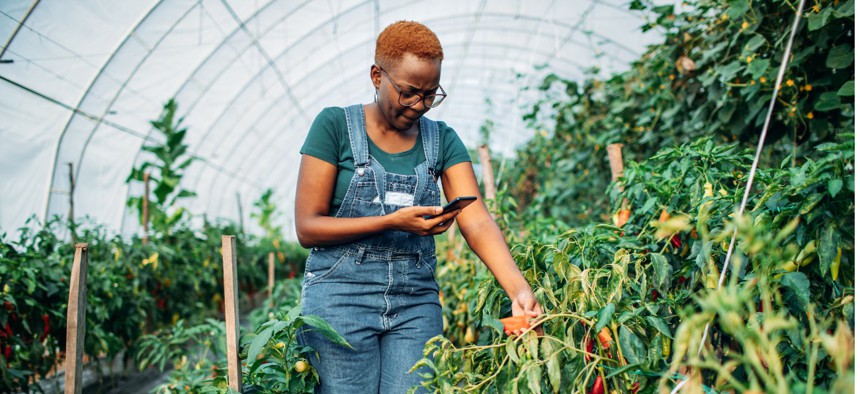
filmstudio / istock
USAID Partners with Nonprofit to Increase Diversity in Talent Pipeline
The initiative, through the Bureau for Resilience and Food Security, is one of several actions the U.S. Agency for International Development has taken to improve diversity and inclusion.
The U.S. Agency for International Development recently partnered with a nonprofit in hopes of building a pipeline of diverse talent, an area in which the agency has had “mixed” progress in recent years.
USAID’s Bureau for Resilience and Food Security signed a memorandum of understanding in late February with Minorities in Agriculture, Natural Resources and Related Sciences, a nonprofit dedicated to the advancement of underrepresented groups.
“What we’re trying to get at through the MOU is [to] promote connectivity, understanding and engagement opportunities,” Jim Barnhart, assistant to the administrator for the Bureau for Resilience and Food Security and deputy coordinator for development for Feed the Future, the government’s global hunger and food security initiative, told Government Executive in a recent interview. “From USAID’s perspective, we’re trying to increase the pipeline of diverse talent in [agricultural] sciences and beyond.”
His “fervent hope” is that the MOU will “allow us to access a diverse talent pool … we’ve seen time and again through studies that a more diverse and inclusive workforce delivers better results whether you’re in the private sector or the public sector.”
Specifically, the initiatives will include webinars about how USAID’s work aligns with the group, an exchange mentoring program, workshops on contracting with USAID and an internship program. The agency announced the partnership with the bureau in late February and some of these efforts are already underway.
The focus is on recruitment as well as retention at the Bureau for Resilience and Food Security, which has 251 employees and focuses on agricultural development, poverty reduction and water insecurity worldwide. While the nonprofit mainly focuses on domestic affairs, USAID hopes to apply lessons and insights to its work in international affairs.
“[Minorities in Agriculture, Natural Resources and Related Sciences] is looking forward to the partnership with USAID,” said Antomia Farrell, national president of the organization. “We are excited about exposing our 2,050 members to domestic and international opportunities within USAID. We have been collaborating for the past year, so we are ecstatic to be official partners.”
Barnhart noted that a Government Accountability Office’s report published last June said there has been “mixed progress” at USAID in increasing diversity over the years.
“The overall proportion of racial or ethnic minorities in the U.S. Agency for International Development’s full-time, permanent, career workforce increased from 33% to 37% from fiscal year 2002 to fiscal year 2018,” said the report. However, “the direction of change for specific groups varied.”
Additionally, “promotion outcomes at USAID were generally lower for racial and ethnic minorities than for whites in early to mid-career.” In the foreign service the “average promotion rates were lower for racial or ethnic minorities in early to mid career, but differences were generally not statistically significant.”
The watchdog’s review found that “particularly positions of authority with our agency, people of color and women, they’re not represented in the same way that they should be throughout the agency,” said Barnhart.
“I think the pandemic has exposed, in stark contrast, the need for greater equity in science and a stronger connection between global and local issues,” he said. “So we are seeing the most vulnerable have been hit the hardest by it,” domestic and internationally.
Barnhart spent most of his career overseas in various capacities. He came into his current role at the bureau in June 2020, as the country was gripped by both the pandemic and widespread protests for racial justice following the police killing of George Floyd in Minneapolis in May.
“One of the first things that hit me upon arriving in the states was the issue of racial equity in the aftermath of the George Floyd killing … and it promoted quite a bit of deep and important conversations within our bureau about the lived experiences of staff,” he said. Certainly for me, as a new person coming in to lead the bureau, it made it clear to me that diversity, equity and inclusion needed to be one of the top priorities for our bureau going forward.”
As a result, the bureau strengthened its diversity and inclusive council and accelerated some of the work it was already doing to partner with organizations such as the nonprofit.
USAID also has partnerships with the Payne International Development Fellowship, a program for graduate students that provides a “unique pathway” to the agency for groups that are historically underrepresented in the foreign service.
On his first day in office, President Biden revoked former President Trump’s executive order that limited certain diversity training for federal employees, after which the agency immediately reinstated diversity, equity and inclusion training and the forums.
Samantha Power, Biden’s nominee for USAID administrator, said during her nomination hearing on March 23 that if confirmed, she would “strengthen the institution of USAID and invest in the capabilities of the agency’s dedicated 10,000 foreign service officers, civil servants, locally-employed staff, contractors, and other personnel.” She plans to do this by “urgently addressing the issues relating to diversity, equity, inclusion, and advancement within USAID’s workforce.”







